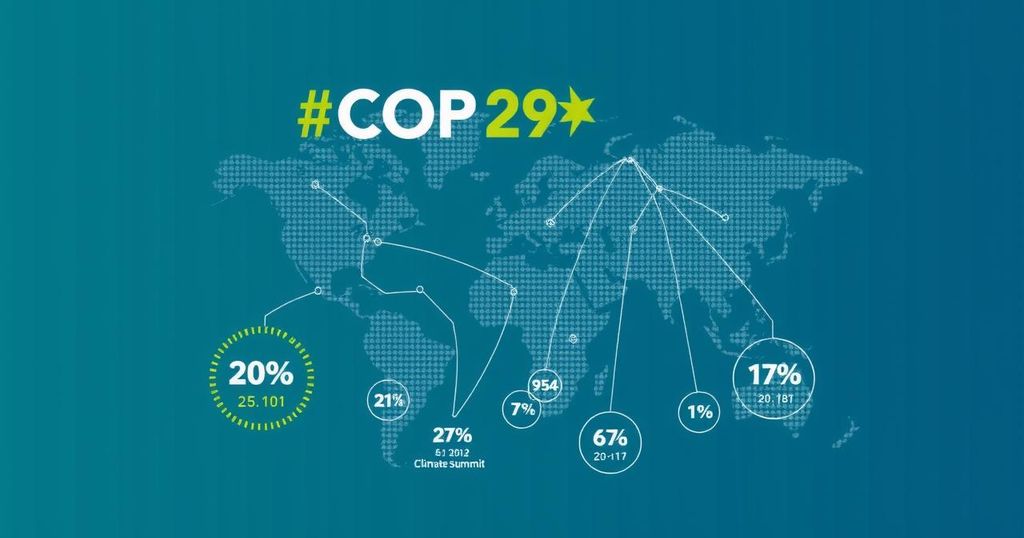Key Takeaways from COP29 Climate Summit in Baku

COP29 in Baku concluded with a climate finance deal of $300 billion yearly by 2035, criticized by developing nations as inadequate. Trump’s election raised concerns about US commitments, and a new carbon credit framework was established. However, the summit faced criticisms over inadequate progress in reducing fossil fuel dependency and rising global emissions.
The COP29 climate summit, held in Baku, Azerbaijan, concluded with a deal on climate finance made after prolonged negotiations. Although an annual target of $300 billion by 2035 was established, many developing nations criticized these financial provisions as insufficient for transitioning to clean energy. The summit’s tone was further dampened by Donald Trump’s presidential election victory, which raised concerns about U.S. commitments to global climate efforts due to his anti-climate stance and the selection of a climate skeptic for his cabinet.
In a significant development, COP29 agreed to establish a framework for carbon credits, allowing countries to leverage these credits to attract funding and offset emissions. However, details regarding registry structures and transparency need to be clarified. Despite these advancements, many participants expressed doubts about the effectiveness of the COP process, given the persistent rise in greenhouse gas emissions and global temperatures.
Additionally, the summit highlighted trade tensions, particularly regarding climate-related trade barriers that impede the ability of developing countries to foster green investments. The obligation for future discussions on such issues was recognized in the outcomes of COP29. Notably, the meeting took place in a fossil fuel-producing nation, with hosts emphasizing their oil and gas resources, which led to criticism for failing to advance commitments to phase out fossil fuels and enhance renewable energy initiatives.
The COP29 summit forms part of a series of United Nations climate conferences aimed at addressing global climate change. These summits bring together representatives from nations worldwide to negotiate agreements and establish frameworks for climate action, including funding for developing countries and rules for carbon trading. The climate finance discussions at COP29 highlighted the ongoing challenges faced by poorer nations in securing adequate resources to combat climate change, particularly in light of the evolving political landscape in the United States and the increasing prevalence of extreme weather events globally.
In summary, the COP29 climate summit underscored the ongoing challenges in addressing climate finances, with an agreement reached that many deemed insufficient for the urgent needs of developing nations. The US’s political climate introduced further skepticism towards global commitments, while the establishment of a carbon credit framework offered potential pathways for future funding. Consequently, the need for an effective and unified global response to climate change remains critical, as evidenced by the escalating impacts of climate crises worldwide.
Original Source: kathmandupost.com






